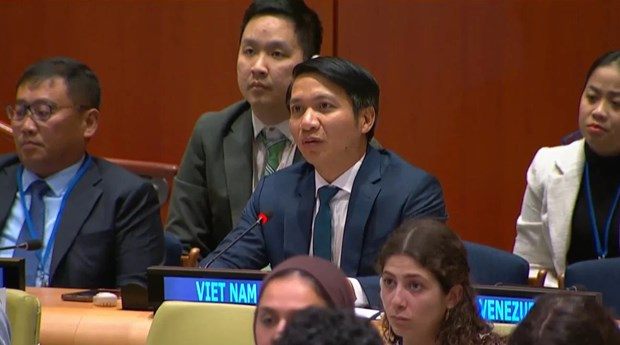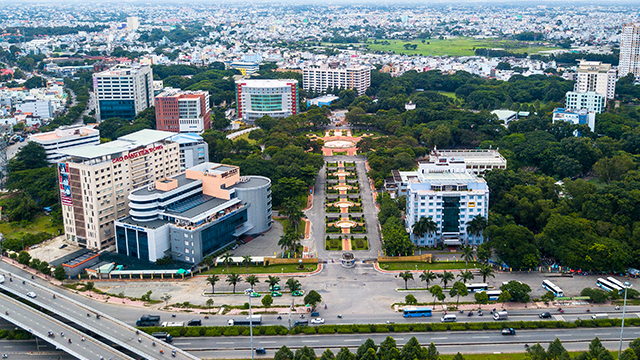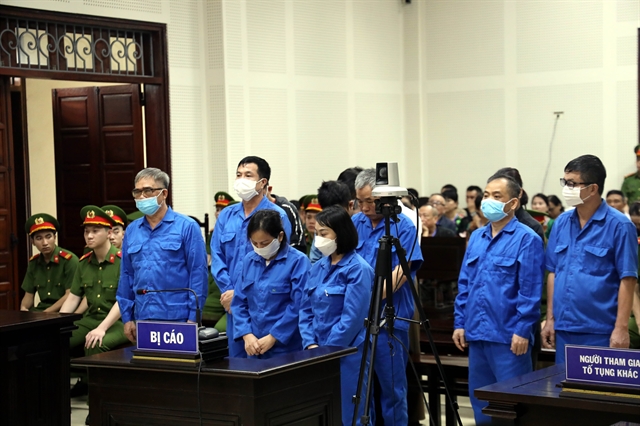 Op-Ed
Op-Ed

It’s not that they don’t know that smoking kills. It just means that it will take a lot more to get people to quit than just telling them that smoking will kill them someday.
 |
by Hoàng Anh
A report on the prevalence of tobacco smoking published by the World Health Organisation (WHO) in 2015 indicated that 47.1 per cent of Vietnamese adults (aged 15 and above) were smokers.
That number translated to more than 20 million smokers in the country, or nearly one out of five Vietnamese, despite numerous awareness campaigns and measures taken by both society and the Government in recent years to educate the population about the harmful effects of smoking on health.
When asked whether they were aware of the harmful effects of smoking, many smokers said they would continue anyway, even knowing all the bad things it may do to their health.
It would seem that just simply telling people that smoking is bad isn’t going to be enough. It’s not that they don’t know that smoking kills. It just means that it will take a lot more to get people to quit than just telling them that smoking will kill them someday.
Many of my foreign friends who visited Việt Nam said one of the most “pleasant surprises” about Việt Nam was the price of cigarettes.
“Twenty-thousand Việt Nam đồng (US$1) for a pack of 20. This is only one-tenth of the price I would have to pay in Europe,” one commented. Many of them, of course, were heavy smokers.
Cheap cigarettes are a tempting poison. The low price tag only makes it more difficult for them to quit. As is the case for millions of my countrymen, many openly admitted that they couldn’t quit after numerous unsuccessful attempts. It was just too cheap.
While it may have been too late for them, not much is being done to prevent Vietnamese adolescents from picking up a smoking habit.
The country introduced its first legal effort to combat smoking, the Law on Prevention and Control of Tobacco, in September 2012. It stated clearly that the sale of tobacco products to minors was prohibited, and smokers must not smoke in the presence of children, pregnant women, the sick and the elderly.
Not much has changed four years after the introduction of the law.
Kids are still able to buy cigarettes from convenience stores under the pretext that their fathers or older brothers asked them to fetch the cigarettes. One may still easily find smokers happily puffing away in cafés filled with children and pregnant women, even with non-smoking signs displayed. It’s just too easy for them to smoke.
A study recently published by Seattle’s University of Washington indicated that children with parents who smoked are twice as likely to start smoking between the ages of 13 to 21 as compared to their peers with non-smoker parents.
“Do as I do” and not “do as I say” is the deciding factor when it comes to starting smoking among children. Parents who want to keep their kids from smoking must first set an example themselves. Children who grew up seeing smokers everywhere will be far more likely to pick up smoking.
Việt Nam has been reporting an increased number of patients diagnosed with cancer every year. It’s hard to ignore smoking as a leading cause of a number of deadly cancers. People often get all worked up about pollution and unsafe food cases. Yet it is paradoxical that the same people refuse to quit smoking while knowing, for certain, that it is killing them.
The threat to one’s health from smoking is more real than the recent dead fish, which one may or may not have to consume, or Hà Nội’s bad air, which may or may not have been measured properly. One thing is for certain: smoking kills, and not just the one who smokes, but also people around him or her.
Back in 2014, during a heated debate on whether heavier taxes should be placed on cigarettes, many NA deputies defended the tobacco industry and said that the financial contribution it made to the State’s budget was significant and that the goal of reducing the number of smokers isn’t going to be achieved just by raising the tax.
We should also look beyond that number. Beyond the billions of đồng contributions were thousands of lung cancer patients and others with respiratory diseases along with the massive social cost associated with them.
The tobacco industry may have contributed to the State’s budget in the short term, but in the long term society will have to pay the cost. The dilemma here is to decide whether the Government wants the short-term financial benefits or if it wants to promote a smoke-free society and healthier lifestyle.
Many deputies pointed out that increasing the price isn’t going to be enough to make smokers quit. Instead, it may encourage consumers to switch to smuggled cigarettes, which have been flooding the domestic market for years. Not only was it impossible to control the quality of these contraband items, but the State would also lose out on potential tax income due to a reduced market share among domestic manufacturers.
It’s certainly not an easy fight to reduce the number of smokers in Việt Nam. In order for the country to realise that goal, measures must be taken by the Government, from cigarette smuggling combat campaigns to awareness and health education programmes. But beyond that, members of society down to each individual must also be held responsible for their own health and that of their family members. — VNS









